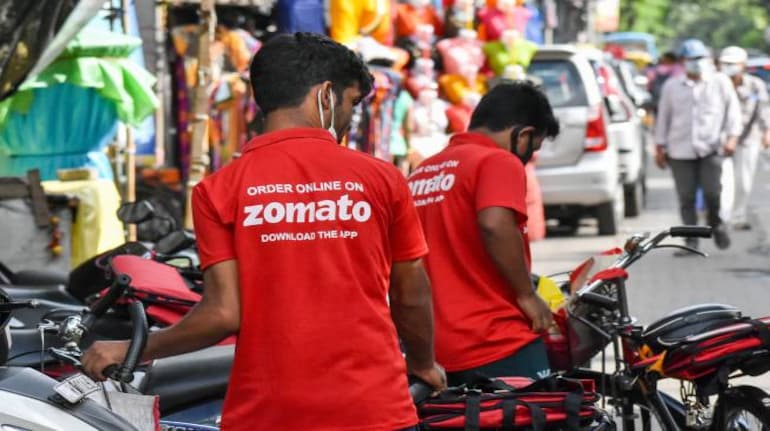
Zomato's result came with a surprise on August 3. It turned in a 'profit after tax' of Rs 2 crore in the June quarter for the first time amid much fanfare on social media.
Early-stage Zomato investor Sanjeev Bikhchandani tweeted a Rajesh Khanna song to mark the occasion. "Yeh Kya hua, kaise hua... chodo yeh na pucho". (What has happened, how it happened... don't ask the reason).
But we at Moneycontrol had to take a closer look.
Of course, Zomato has upped its game in terms of operational efficiencies. For example, its delivery costs aren't rising as fast as its revenue is scaling.
However, the company would have recorded a loss after tax, not profit after tax, if not for a critical tax provision.
"Essentially Zomato has been loss-making for a while. So it is allowed to offset that loss against a profit of future periods, according to our tax law. However, the auditors don't allow that rightaway when there is no visibility of profits in the subsequent periods," said Suraj Malik, a veteran management consultant.
"Auditors don't recognize that an asset till they have 'reasonable certainty' of profits in the future. But when a company sort of starts reporting profit, that is where the auditor feels more confident that the trend will continue and that is where they allow the company to recognise an asset," he added.
According to the financials filed by Zomato today, it recorded a loss before tax of Rs 15 crore. Then came the application of this tax provision, due to which Rs 17 crore of 'deferred tax' got added to the previous line item. And consequently, a profit after tax (PAT) of Rs 2 crore appeared on the financial statement.
"Deferred tax assets are an accounting creation due to the differences in the way income tax & corporate accounting are done. When a company suffers a book loss but shows a profit as per the Income Tax Act, the company has to pay tax on it, but can claim credit for the same in the future," said Siddarth Pai, managing partner of VC firm 3One4 Capital.
"This is why free cash flows help investors understand the true financial health of a company" he added.
Zomato today reported revenues of Rs 2,416 crore, up 70.9 percent from the year-ago period, as demand growth recovered on cooling inflation and the strength of the food delivery platform's loyalty programme.
During the same quarter last year, Zomato posted a net loss of Rs 186 crore while its revenues stood at Rs 1,414 crore.
This improved performance comes at a time when new-age companies are vying for profitability amid one of the worst funding winters in recent years.
Zomato has been vocal about turning in a quarterly net profit in FY24, even as it first achieved the operational profitability of its food delivery arm in the previous financial year.
The company hopes to maintain its winning streak.
"...we expect our business to remain profitable going forward and knowing what we know today, we believe we will continue to deliver over 40 percent YoY topline (adjusted revenue) growth for at least the next couple of years," Akshant Goyal, CFO, Zomato said in the company's shareholder letter.
Discover the latest business news, Sensex, and Nifty updates. Obtain Personal Finance insights, tax queries, and expert opinions on Moneycontrol or download the Moneycontrol App to stay updated!